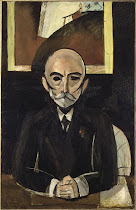Time has passed my Great Great Grand.
I lived in Thunder Bay and earned my certification to teach Grades 4-12 in Ontario. I traveled in China, Vietnam, Cambodia, Thailand, Nepal, and India for the MEI Academy. And most significantly, my long term relationship with L. ended last year.
Some of the most important things that I have learned about myself have been tied up in this relationship and I censored myself from writing about them in this blog -since it is public. Now I understand why there isn't a great piece of literature that has been accused of being "too honest". It is is a difficult thing to do. I think a great writer feels a part of something bigger, making it easy to sacrifice comfort now for truth eternal.
My heart was shattered but in that good way that has shown me that I am built for happiness. That I believe in love now more than ever. And that there is no gain without risk and that I would gladly put my heart on the line to lose harder next time. Hopefully, by being myself, I'll attract someone with the same small town heart. Someone who like to cuddle and can't relate to John Updike's self-destructive characters.
It was instructive to see a friend who was going through a recent break up. I've been so busy being a nomad that I missed her entire relationship. I spoke to her when they had met and now, almost a year later, when it had ended. She was devastated but it seemed like a week to me. Easy for me to lauigh off, I was invested in her as my friend and never saw this guy. It laid it out so simply for me. I'm only interested in what my friends have created. Everything else is the glanced-over bio.



